Abstract
Project DIRECT (Diabetes Intervention Reaching and Educating Communities Together) is a multilevel community-based intervention project designed to address diabetes and its complications in an African-American community. This article presents results of the Project DIRECT pilot study and describes risk factors for diabetes, diabetes prevalence, complications, and care practices. During 1993, a pilot study was conducted among persons 20 to 74 years of age in Wake County, North Carolina. The study involved household interviews and examinations, and more extensive health center interviews and examinations based on the race of the head of the household, previous diagnosis of diabetes, and results of capillary glucose tests done in the household. Of the black population aged 20 to 74 years, 52 +/- 3% reported being inactive and 51 +/- 3% were overweight; the prevalence of diagnosed diabetes was 5.2 +/- 0.9%; the prevalence of undiagnosed diabetes was 5.7 +/- 2.7%; and the prevalence of impaired glucose tolerance was 11.4 +/- 7.5%. Blacks with diabetes were significantly more likely than nonblacks with diabetes to have uncontrolled hypertension and to smoke cigarettes. Blacks with diabetes were significantly less likely to report having health insurance or to have a private health-care provider. Diabetes mellitus is a major public health problem in the African-American community of Wake County. Modifiable risk factors for diabetes and undiagnosed diabetes are common. Project DIRECT is attempting to improve the health-related quality of life of this population by reducing the burden of diabetes and its complications through a multilevel, community-based intervention.
Full text
PDF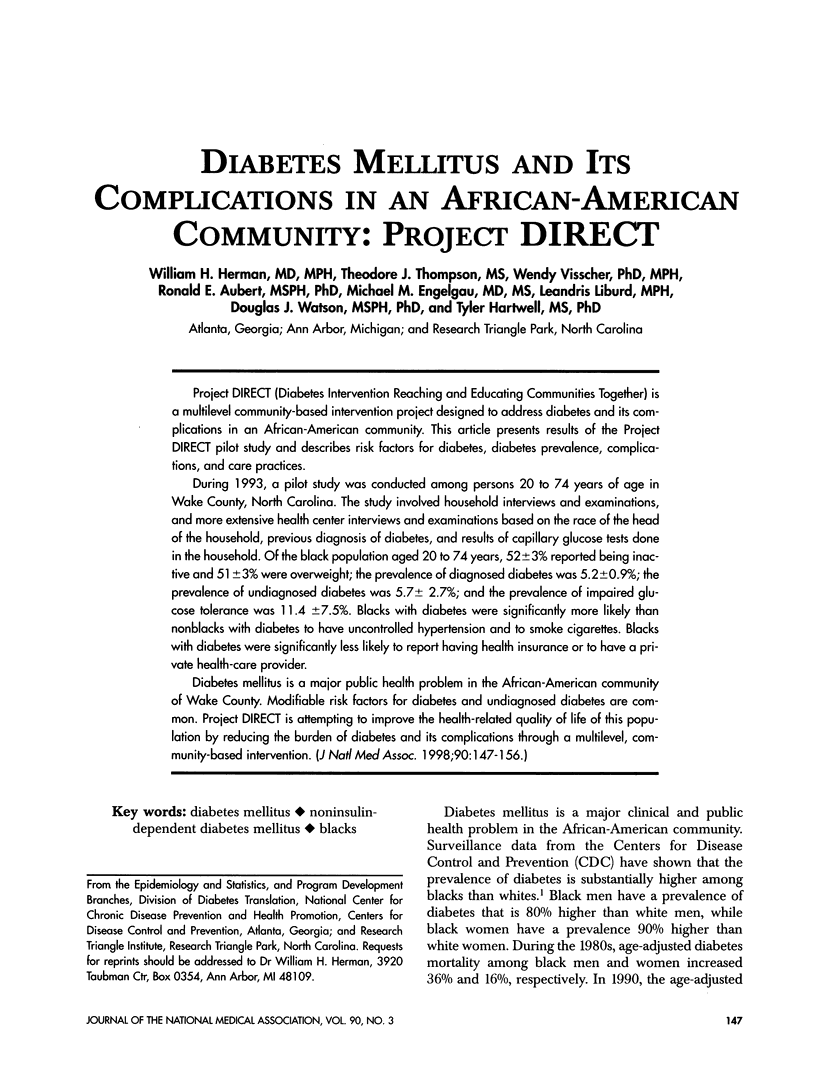
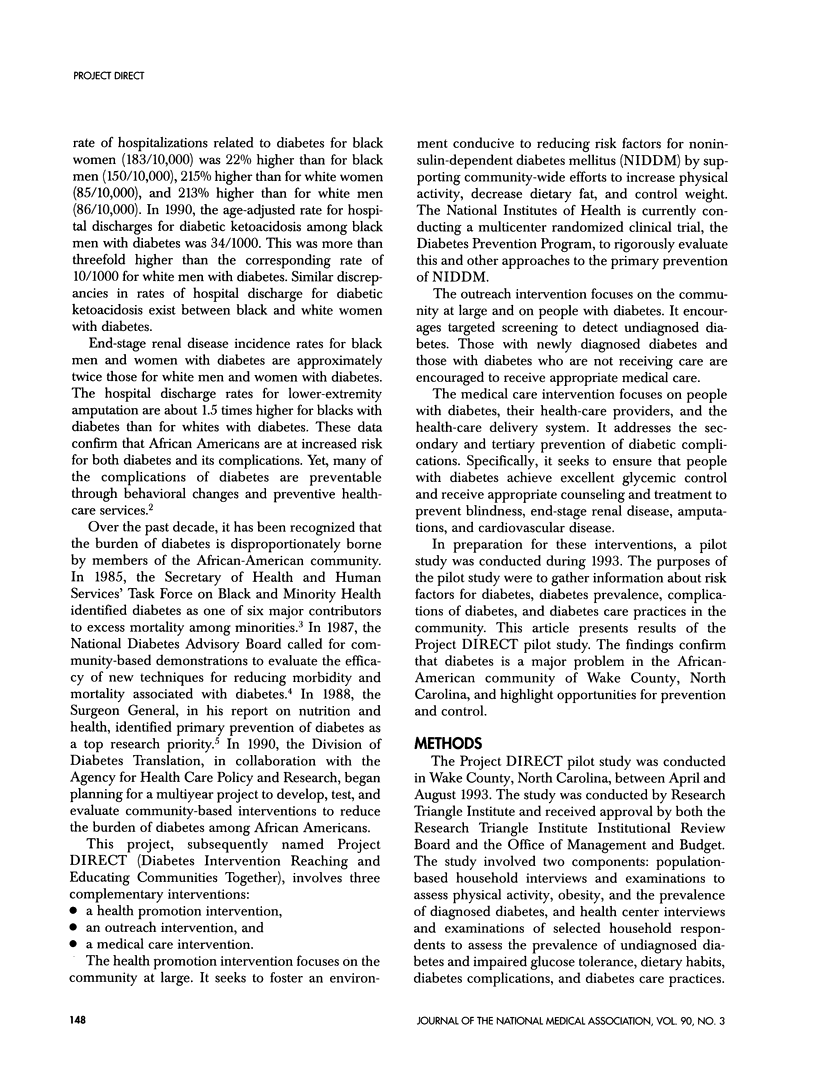
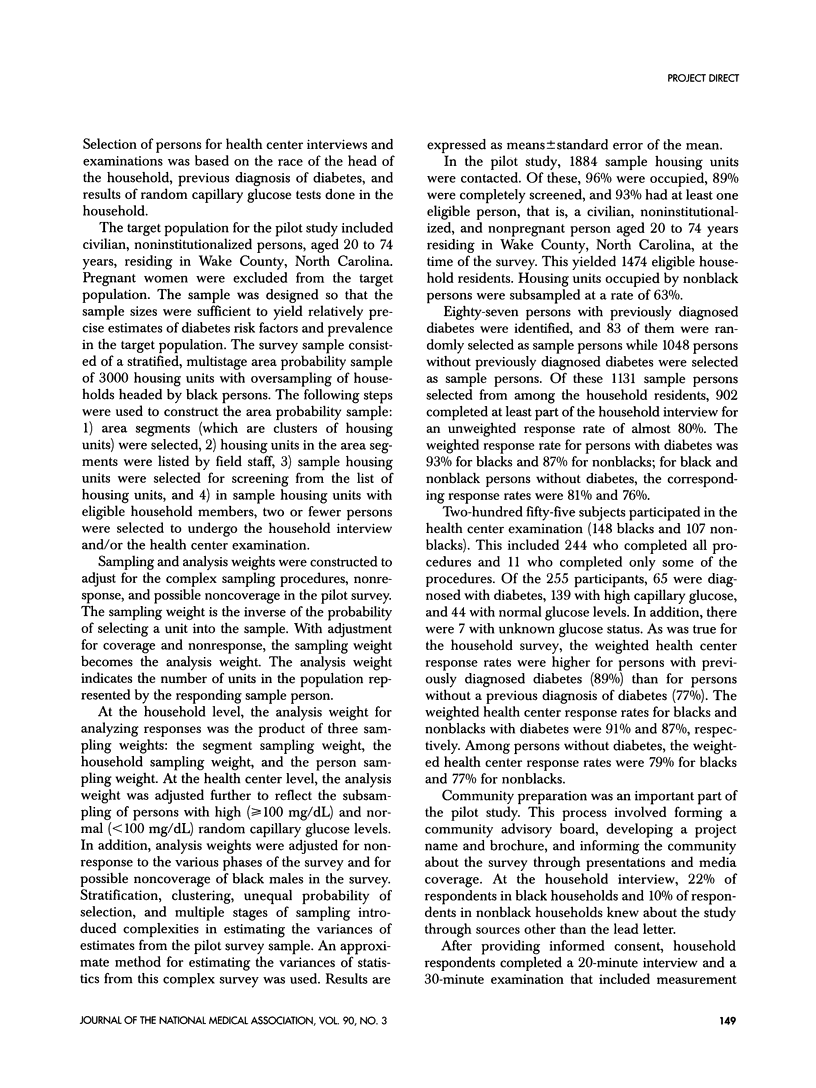
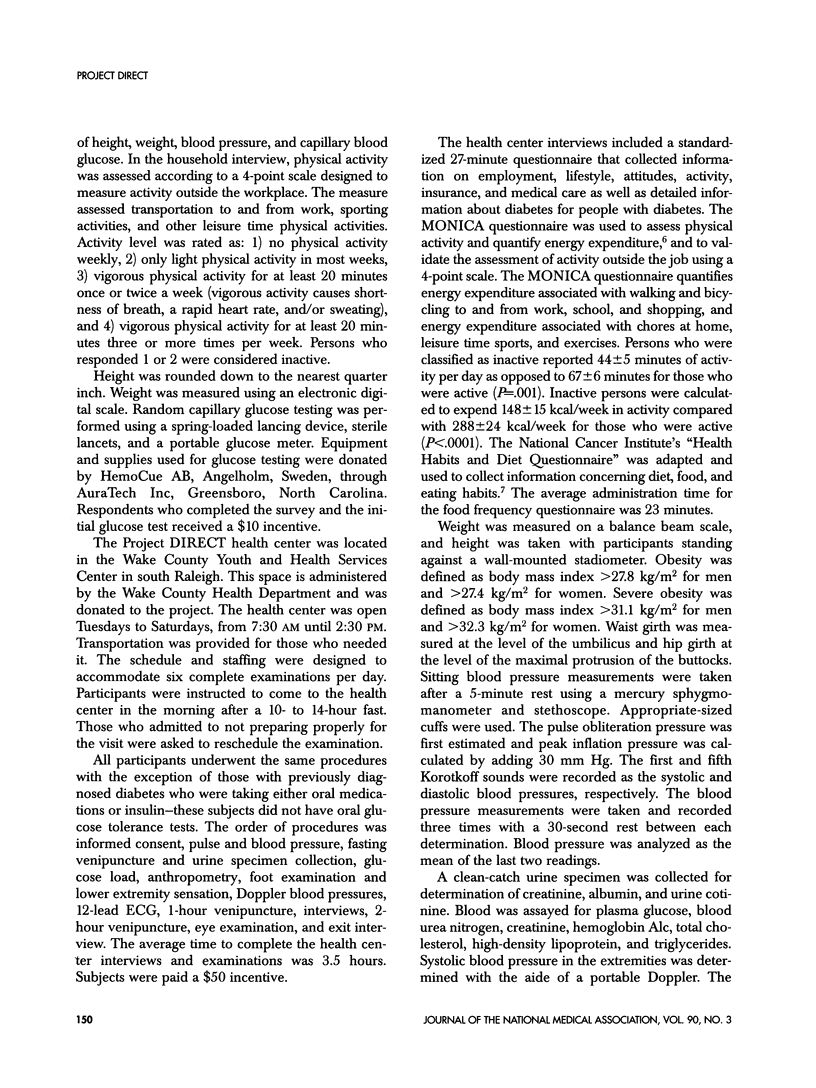
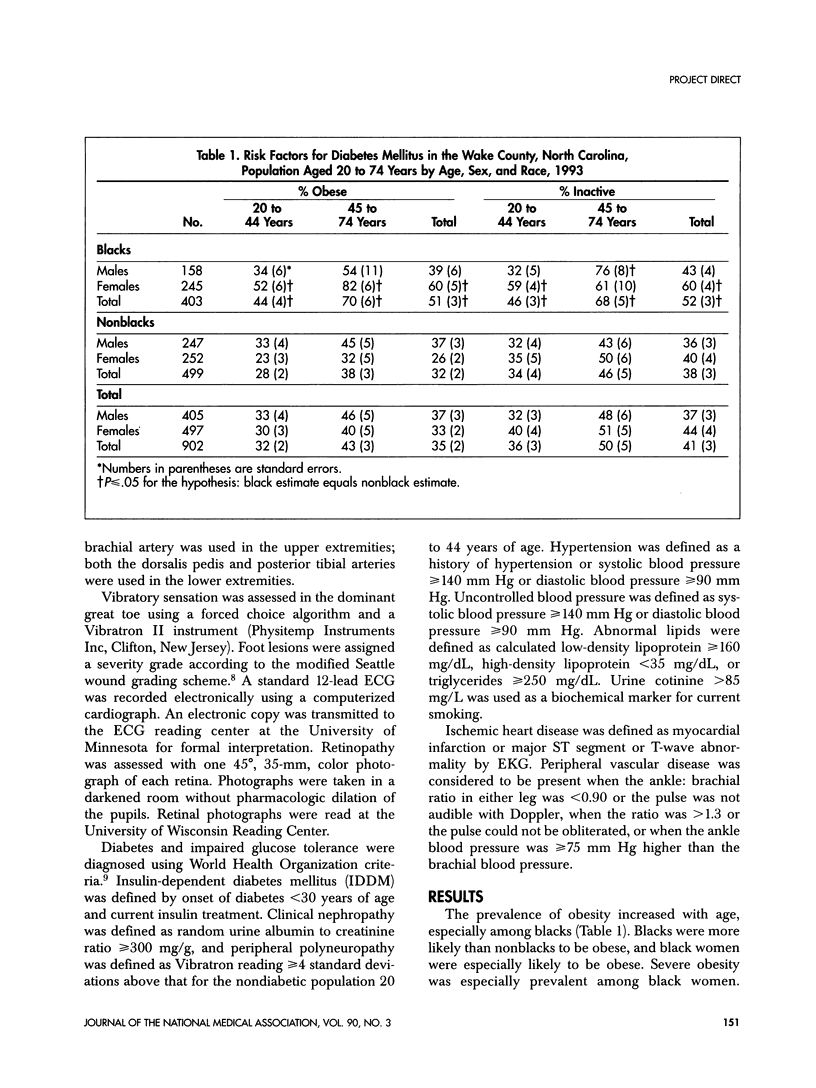
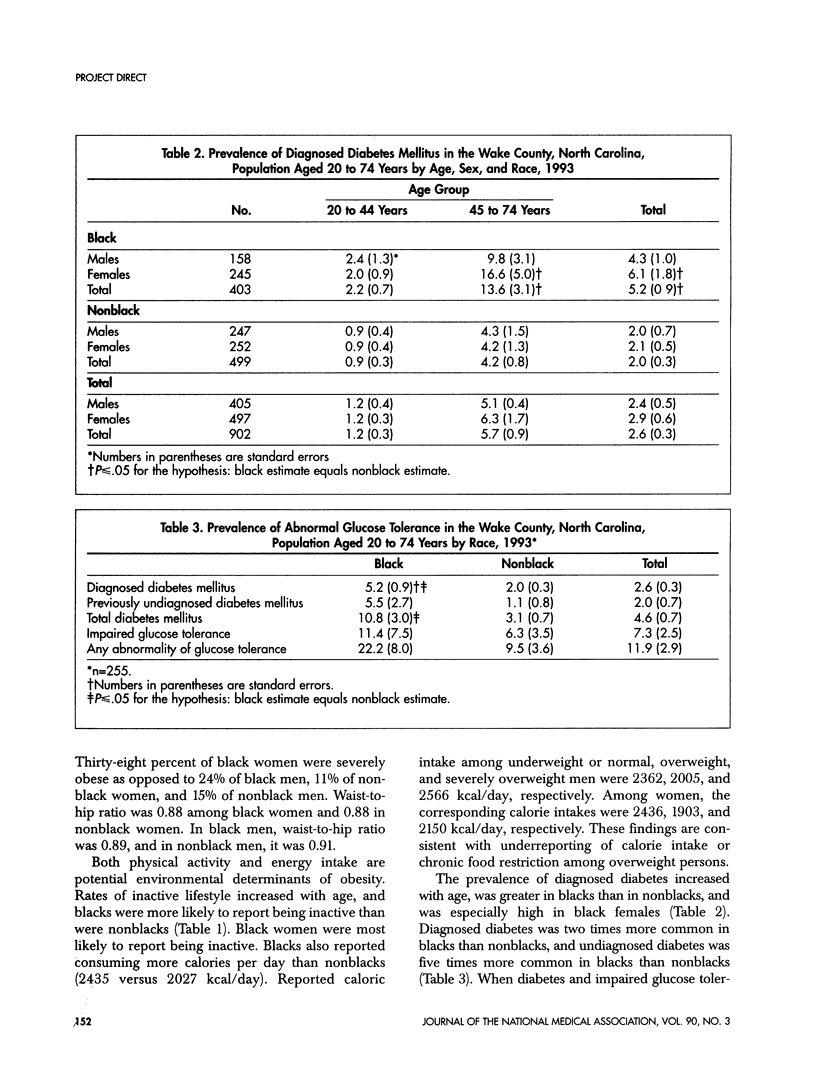
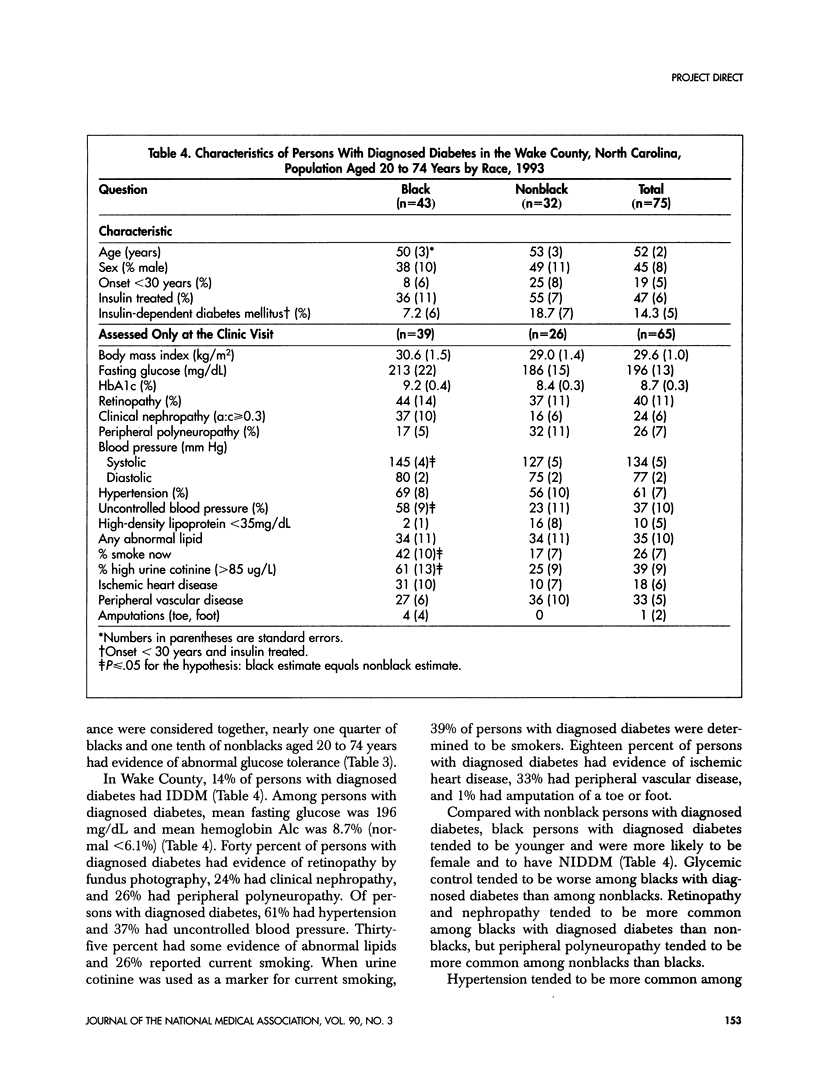
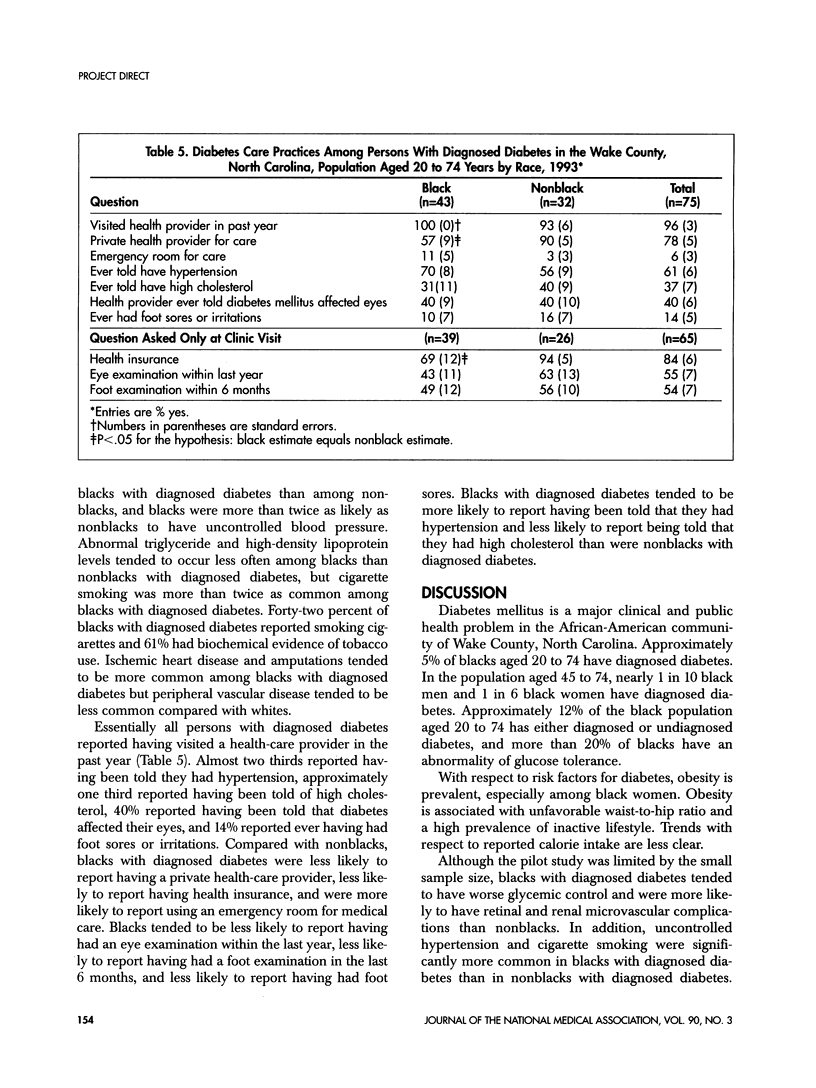
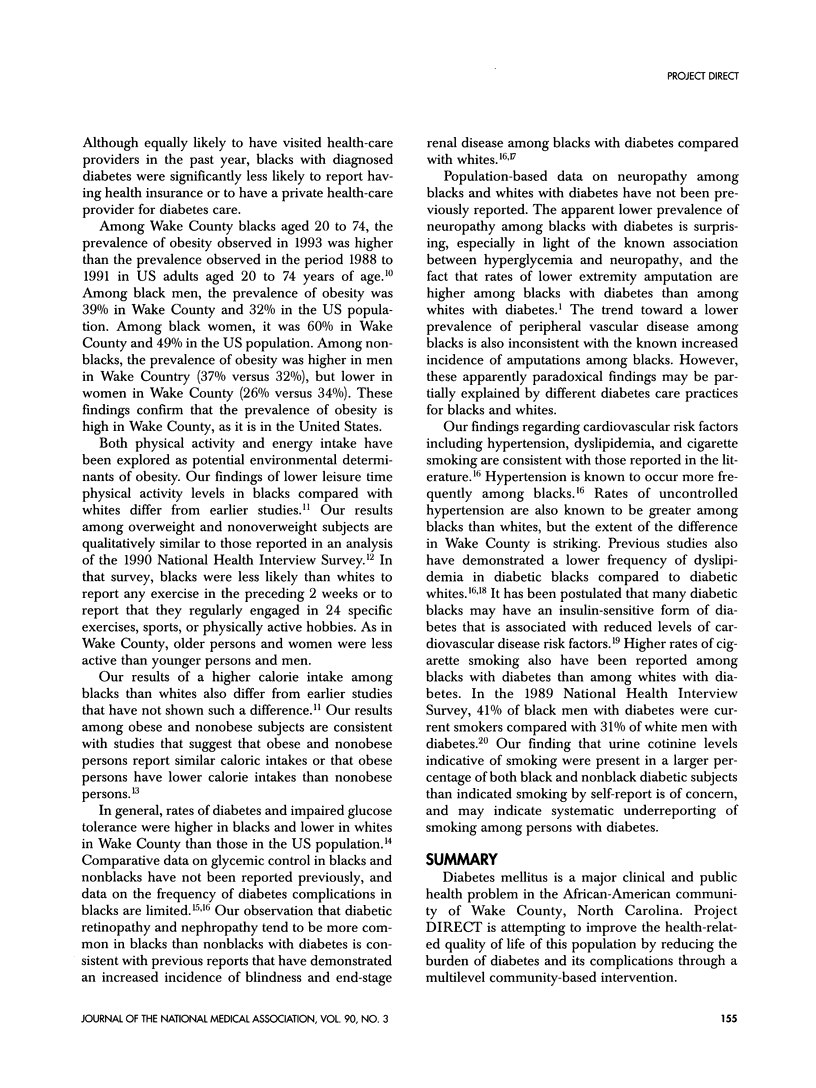
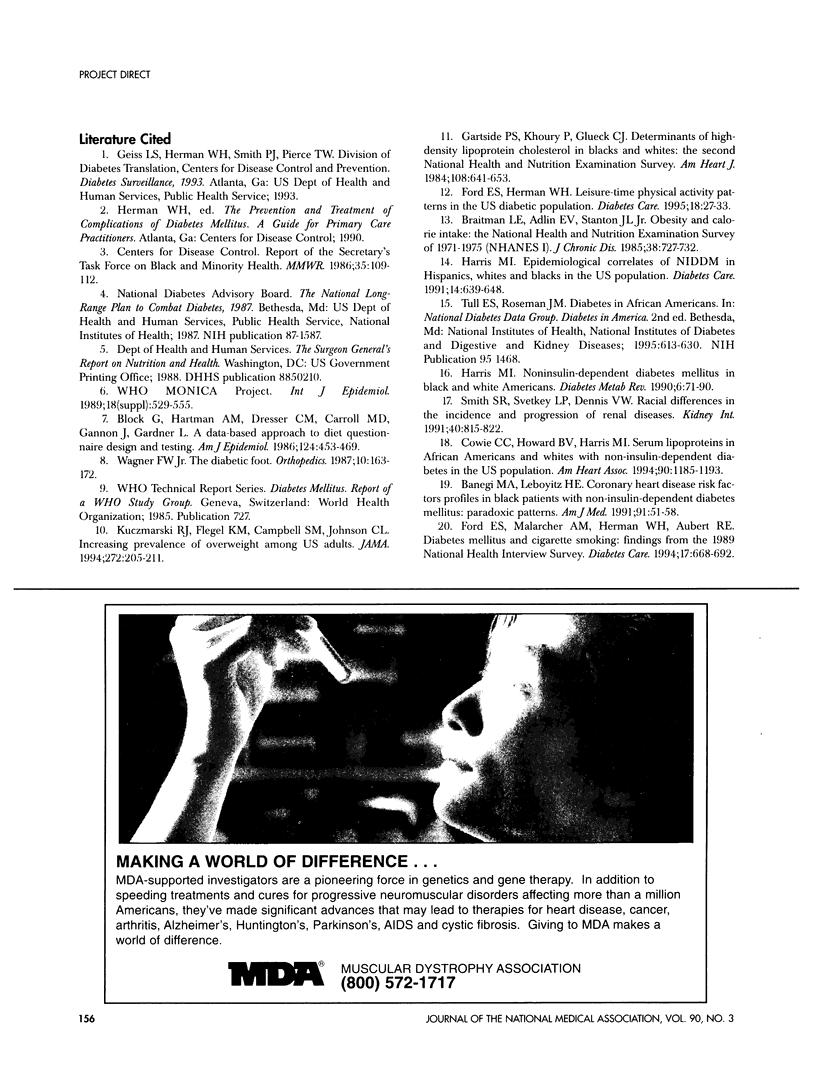
Selected References
These references are in PubMed. This may not be the complete list of references from this article.
- Block G., Hartman A. M., Dresser C. M., Carroll M. D., Gannon J., Gardner L. A data-based approach to diet questionnaire design and testing. Am J Epidemiol. 1986 Sep;124(3):453–469. doi: 10.1093/oxfordjournals.aje.a114416. [DOI] [PubMed] [Google Scholar]
- Braitman L. E., Adlin E. V., Stanton J. L., Jr Obesity and caloric intake: the National Health and Nutrition Examination Survey of 1971-1975 (HANES I). J Chronic Dis. 1985;38(9):727–732. doi: 10.1016/0021-9681(85)90114-6. [DOI] [PubMed] [Google Scholar]
- Centers for Disease Control (CDC) Report of the Secretary's Task Force on Black and Minority Health. MMWR Morb Mortal Wkly Rep. 1986 Feb 28;35(8):109–112. [PubMed] [Google Scholar]
- Cowie C. C., Howard B. V., Harris M. I. Serum lipoproteins in African Americans and whites with non-insulin-dependent diabetes in the US population. Circulation. 1994 Sep;90(3):1185–1193. doi: 10.1161/01.cir.90.3.1185. [DOI] [PubMed] [Google Scholar]
- Ford E. S., Herman W. H. Leisure-time physical activity patterns in the U.S. diabetic population. Findings from the 1990 National Health Interview Survey--Health Promotion and Disease Prevention Supplement. Diabetes Care. 1995 Jan;18(1):27–33. doi: 10.2337/diacare.18.1.27. [DOI] [PubMed] [Google Scholar]
- Ford E. S., Malarcher A. M., Herman W. H., Aubert R. E. Diabetes mellitus and cigarette smoking. Findings from the 1989 National Health Interview Survey. Diabetes Care. 1994 Jul;17(7):688–692. doi: 10.2337/diacare.17.7.688. [DOI] [PubMed] [Google Scholar]
- Gartside P. S., Khoury P., Glueck C. J. Determinants of high-density lipoprotein cholesterol in blacks and whites: the second National Health and Nutrition Examination Survey. Am Heart J. 1984 Sep;108(3 Pt 2):641–653. doi: 10.1016/0002-8703(84)90649-5. [DOI] [PubMed] [Google Scholar]
- Harris M. I. Epidemiological correlates of NIDDM in Hispanics, whites, and blacks in the U.S. population. Diabetes Care. 1991 Jul;14(7):639–648. doi: 10.2337/diacare.14.7.639. [DOI] [PubMed] [Google Scholar]
- Harris M. I. Noninsulin-dependent diabetes mellitus in black and white Americans. Diabetes Metab Rev. 1990 Mar;6(2):71–90. doi: 10.1002/dmr.5610060202. [DOI] [PubMed] [Google Scholar]
- Kuczmarski R. J., Flegal K. M., Campbell S. M., Johnson C. L. Increasing prevalence of overweight among US adults. The National Health and Nutrition Examination Surveys, 1960 to 1991. JAMA. 1994 Jul 20;272(3):205–211. doi: 10.1001/jama.272.3.205. [DOI] [PubMed] [Google Scholar]
- Smith S. R., Svetkey L. P., Dennis V. W. Racial differences in the incidence and progression of renal diseases. Kidney Int. 1991 Nov;40(5):815–822. doi: 10.1038/ki.1991.281. [DOI] [PubMed] [Google Scholar]
- Wagner F. W., Jr The diabetic foot. Orthopedics. 1987 Jan;10(1):163–172. doi: 10.3928/0147-7447-19870101-28. [DOI] [PubMed] [Google Scholar]


